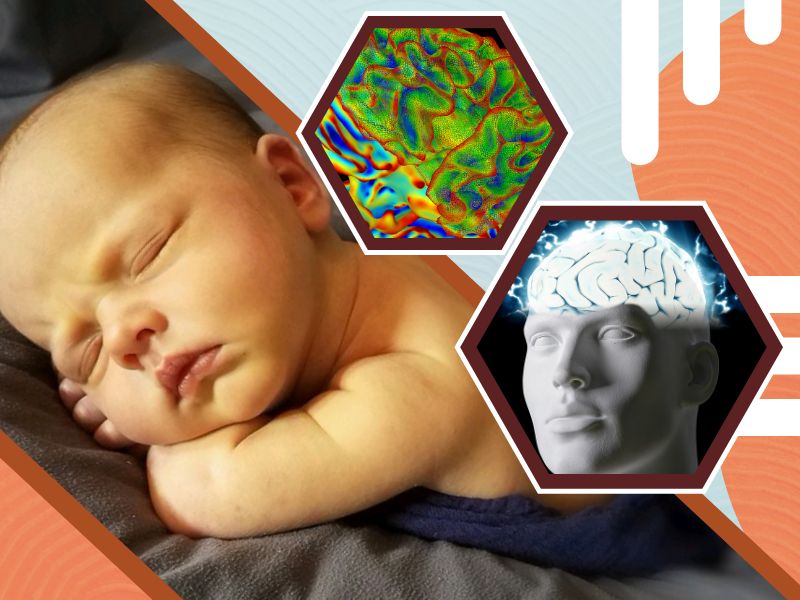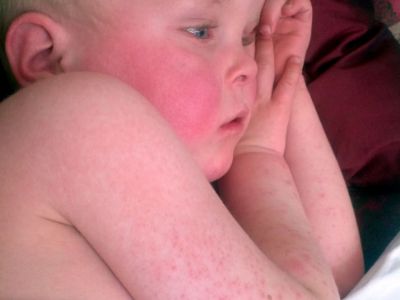Symptoms of Encephalitis in Infants

What Is Encephalitis In Infants?
Encephalitis is an inflammation of the brain. The swelling occurs as a result of the inflammation. Changes in the nervous system of the infant cause confusion, altered behavior, and seizures. Encephalitis often occurs at the same time as meningitis. The membranes surrounding the brain and spinal cord become inflamed during meningitis. Both conditions are serious and life-threatening and should be treated as soon as possible.

Symptoms of Encephalitis in Infants
- Fever
- Skin rash
- Seizures
- Sensitivity to light
- Bulging of the soft spots on a baby’s head
- Increased irritability
- Nausea
- Vomiting
These symptoms can be like other health conditions. Take your child to their healthcare provider right away for a diagnosis.
What Causes Encephalitis in Infants?
The main cause, according to researchers, is viruses. Infant receives vaccinations against a variety of viruses, including measles, mumps, rubella, and chickenpox. The rate of encephalitis associated with these diseases has greatly decreased as a result. However, it can still be caused by other viruses. Some of the diseases include the West Nile virus, rabies, and herpes simplex.
Viral illnesses can also cause encephalitis. It can be an upper respiratory infection or an illness that causes diarrhea, nausea, and vomiting. Encephalitis can also occur when someone has Lyme disease, tuberculosis, or syphilis. It can also happen after an infection caused by parasites, such as toxoplasmosis.
Autoimmune reactions are another cause. This is when the immune system of the body attacks the brain tissues. For example, an antibody made against a protein called an NMDA receptor or others may cause encephalitis. This may be triggered by an infection or tumor.
Risk Factors In Infants For Encephalitis
An infant is more at risk if they have one of these:
- An infection caused by parasites, such as toxoplasmosis
- An autoimmune reaction
- Lyme disease
- Tuberculosis
- Syphilis
- Chickenpox
- Herpes simplex virus
- Measles
- Mumps
- Upper respiratory infection
- Illness that causes vomiting, nausea, and diarrhea
Encephalitis Diagnosis

The doctor will ask about your child’s symptoms and health history. This includes questions about the vaccine history of your child. Tell the doctor if your child has recently had a cold, a digestive illness, or other respiratory illness. Also, tell the doctor if your child has recently has traveled or had a tick bite, been around pets or other animals.
Your child may also have tests such as:
- Blood tests
- CT scan
- MRI
- Sputum culture
- Urine and stool tests
- Electroencephalogram (EEG)
How Is Encephalitis Treated In Infants?
Treatment for encephalitis is needed right away. A child needs to stay in the hospital where they can be closely watched. Treatment will depend on the symptoms, age, and general health and severity of the condition.
The goal of treatment is to lessen the swelling in the head and to prevent complications. Your child may need to take medicines to stop the infection and control seizures or fever. In severe cases, your child may need to use a breathing machine. It is important to talk with your child’s healthcare providers about the risks, benefits, and possible side effects of all treatments.



